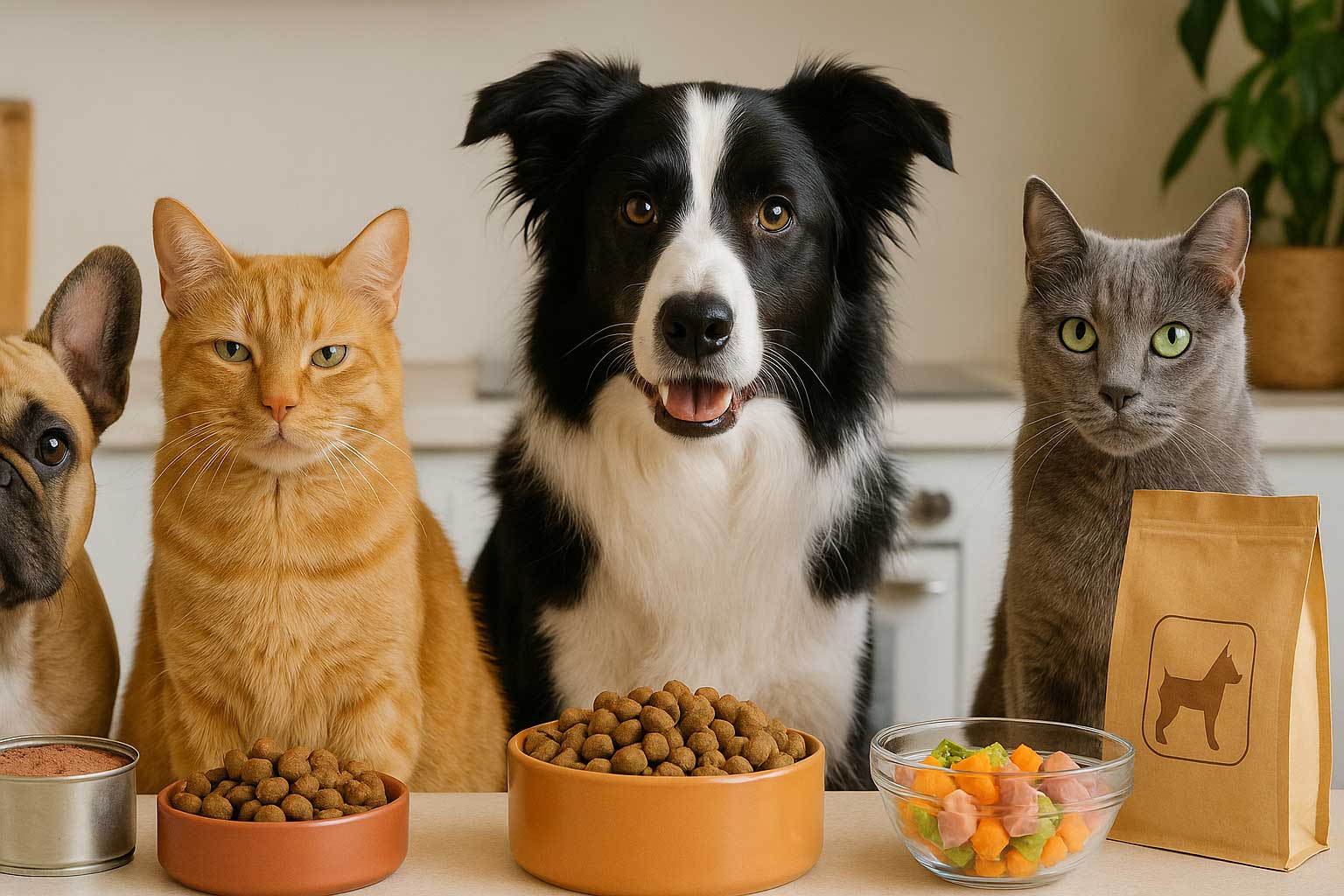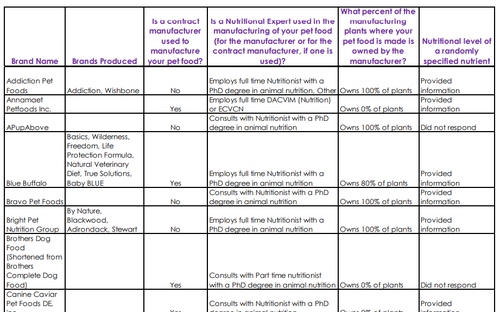
Pet Food Manufacturer Report 2023: Key Insights
Introduction
Choosing the right food for your pet isn’t easy. With endless brands claiming to be “natural,” “holistic,” or “veterinarian-approved,” pet parents often feel overwhelmed. This is where the Pet Food Manufacturer Evaluation Report 2023 by the Pet Nutrition Alliance becomes invaluable.
This annual report investigates how pet food companies operate, who formulates their products, and whether they employ qualified experts in animal nutrition. For pet owners seeking transparency, the evaluation is a rare window into the quality, accountability, and nutritional integrity of popular brands.
In this blog post, we’ll break down the findings of the report, highlight key takeaways, and guide you on what to look for when selecting the best food for your furry friend.
Why the Pet Food Manufacturer Evaluation Report Matters
The pet food industry is worth billions, but not all brands are created equal. The evaluation report shines light on:
- Who formulates the diets (qualified nutritionists or not)
- Ownership of manufacturing plants (full control vs outsourcing)
- Nutritional testing transparency
- Brands that refused to respond
For pet owners, this means you can separate science-driven nutrition from clever marketing.

Key Findings from the 2023 Report
1. The Role of Qualified Nutritionists
One of the most important evaluation criteria is whether manufacturers employ experts such as:
- PhD-level animal nutritionists
- DACVIM (Nutrition) or ECVCN board-certified specialists
- Consulting veterinarians with nutrition training
Examples from the report:
- Hill’s Pet Nutrition – employs DACVIM-certified nutritionists and PhDs.
- Mars Petcare (Royal Canin, Pedigree, Whiskas, etc.) – employs DACVIM/ECVCN specialists, PhDs, and MS-level nutritionists.
- Champion Petfoods (Orijen, ACANA) – employs PhD and MS-level nutritionists.
- Canisource Grand Cru – does not employ MS, PhD, or DACVN nutritionists.
The presence of qualified professionals is a strong indicator of diet safety and scientific formulation.
2. Manufacturing Ownership: Who Controls the Plants?
The report also evaluates whether brands own their manufacturing plants or rely entirely on contractors.
- Brands with 100% plant ownership: Mars, Nestlé Purina, Cargill, Primal Pet Group.
- Brands with partial ownership: Blue Buffalo (80%), Champion Petfoods (95%).
- Brands with 0% ownership: Annamaet, Evermore Pet Food, Nulo, Pet Plate.
Owning plants gives companies more control over quality, safety, and consistency. Outsourcing can be efficient, but it increases risks of contamination and oversight gaps.
3. Transparency: Who Responded vs Who Stayed Silent
Transparency is key. Many brands provided details willingly, but some either declined or did not respond.
- Provided full information: Hill’s, Purina, Mars, Blue Buffalo, Instinct.
- Did not respond: Diamond Pet, Farmina, Freshpet, Stella & Chewy’s, Weruva.
- Declined to respond: Life’s Abundance, Trader Joe’s, Stewart Raw Naturals.
Tip: Transparency in nutrition is as important as ingredient quality. Brands that avoid sharing information raise red flags.
Comparative Snapshot of Popular Brands
| Brand | Uses Qualified Nutritionists? | Owns Plants? | Transparency |
|---|---|---|---|
| Hill’s Pet Nutrition | Yes – DACVIM, PhD | 96% | Provided |
| Mars Petcare (Royal Canin, Pedigree) | Yes – DACVIM, PhD, MS | 100% | Provided |
| Nestlé Purina | Yes – DACVIM, PhD, MS | 100% | Provided |
| Blue Buffalo | Yes – PhD | 80% | Provided |
| Champion Petfoods (Orijen, ACANA) | Yes – PhD, MS | 95% | Provided |
| Farmina | Unknown | Unknown | No response |
| Diamond Pet Foods | Unknown | Unknown | No response |
| Life’s Abundance | Unknown | Unknown | Declined |
What This Means for Pet Owners
Look Beyond Marketing Claims
Fancy labels like “holistic” or “grain-free” don’t guarantee nutritional quality. What matters is scientific formulation and testing.
Choose Brands with Experts on Staff
Companies employing board-certified or PhD nutritionists prioritize your pet’s health.
Demand Transparency
If a brand refuses to disclose basic manufacturing or nutrition information, consider it a warning sign.
Understand the Risks of Outsourcing
Brands that don’t own their plants may have less oversight over ingredient sourcing and safety practices.
How to Use This Report When Choosing Pet Food
When shopping for your pet, ask:
- Who formulated this food?
- Does the company employ qualified nutritionists?
- Do they own their own manufacturing facilities?
- Have they shared their nutritional testing data?
By using the Pet Food Manufacturer Evaluation Report, you’re making choices based on science, not slogans.
Additional Resources for Pet Owners
- How to Compare Pet Foods Like a Nutritionist
- Understanding Pet Food Labels
- How AI is Changing Pet Nutrition
Authoritative sources for further reading:
- World Small Animal Veterinary Association – Global Nutrition Guidelines
- American College of Veterinary Nutrition (ACVN)
Summary
- Qualified nutritionists are critical in pet food formulation.
- Plant ownership equals more control and safety.
- Transparency should be non-negotiable when choosing a brand.
- Some of the largest brands (Hill’s, Mars, Purina) demonstrate strong commitment to scientific standards.
- Many smaller or trendy brands either outsource production or refused to provide data.
FAQs
1. What is the Pet Food Manufacturer Evaluation Report?
It’s an annual survey conducted by the Pet Nutrition Alliance that evaluates how pet food companies operate, focusing on nutrition expertise, manufacturing practices, and transparency.
2. Which brands are considered the most reliable?
Based on the 2023 report, Hill’s, Mars, and Nestlé Purina rank highly due to their employment of qualified experts and full manufacturing ownership.
3. Should I avoid brands that didn’t respond?
Not always—but lack of transparency should make you cautious. Brands unwilling to share basic information raise questions about accountability.
4. Is grain-free food healthier for pets?
Not necessarily. The evaluation shows that formulation quality and nutritional balance are more important than marketing labels like “grain-free.”
5. How can I be sure I’m feeding my pet the best food?
Look for brands that employ veterinary nutritionists, own their manufacturing facilities, and openly share nutritional testing results.
Conclusion
The 2023 Pet Food Manufacturer Evaluation Report is a wake-up call for pet owners. It reveals that not all brands prioritize science, transparency, or safety. By using this knowledge, you can choose food that truly supports your pet’s health and well-being.
At FAMMO, we believe in empowering pet parents with data-driven insights and AI-powered nutrition tools. Stay tuned for more resources that simplify pet feeding decisions.
Join FAMMO today to create a personalized diet plan for your pet.
Comments
Thank you for the insightful content you share.?
Perfect content for pet owners